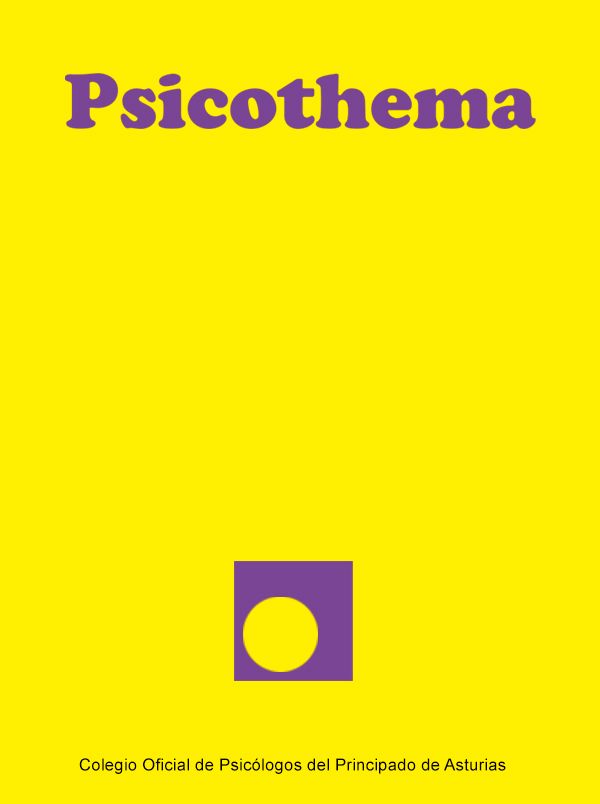Abstract
Background: Little is known about the role of emotion regulation in driving. This study analyzed the psychometric properties of one of the most commonly-used tests for the evaluation of emotion regulation in a drivers’ sample. Methods: A total of 318 male drivers (M age = 41.6 years, SD = 11.1, age range 20-69 years, half with road traffic offences and half, matched controls), participated in the study by filling out the Emotion Regulation Questionnaire (ERQ). Data analysis was carried out using the Rasch Rating Scale Model (RSM). Results: The performance of the response categories was inadequate. After collapsing the seven original response categories into three, the categories were functional, the unidimensionality requirement was met, and data-model fit was adequate. Both person reliability and item reliability were adequate for the two subscales of ERQ. There was a significant difference between the two groups in the cognitive reappraisal subscale. Conclusions: Given the adequate psychometric properties of the ERQ, it is suggested that the role of cognitive reappraisal in driving contexts be explored in depth.
References
Andrich, D. (1978). A rating formulation for ordered response categories. Psychometrika, 43(4), 561-573. https://doi.org/10.1007/BF02293814
Carey, R. N., McDermott, D. T., & Sarma, K. M. (2013). The impact of threat appeals on fear arousal and driver behavior: a meta-analysis of experimental research 1990-2011. PloS ONE, 8(5), Article e62821. https://doi.org/10.1371/journal.pone.0062821
Cavanagh, R. F., & Fisher, W. P. Jr. (2018). The science in human science research: The case for Rasch measurement in learning environment research. Journal of Physics: Conference Series, 1065(7), Article 072010. https://doi.org/10.1088/1742-6596/1065/7/072010
Chan, M., & Singhal, A. (2013). The emotional side of cognitive distraction: Implications for road safety. Accident, Analysis & Prevention, 50, 147-154. https://doi.org/10.1016/j.aap.2012.04.004
Eherenfreund-Hager, A., Taubman-Ben-Ari, O., Toledo, T., & Farah, H. (2017). The effect of positive and negative emotions on young drivers: A simulator study. Transportation Research Part F: Traffic Psychology and Behaviour, 49, 236-243. https://doi.org/10.1016/j.trf.2017.07.002
Engelhard, G. Jr., & Wang, J. (2021). Rasch Models for Solving Measurement Problems (Quantitative Applications in the Social Sciences). SAGE Publications.
Fang, C., Zhang, Y., Zhang, M., & Fang, Q. (2020). P300 measures and drive- related risks: A systematic review and meta-analysis. International Journal of Environmental Research and Public Health, 17(15), Article 5266. https://doi.org/10.3390/ijerph17155266
Fischer, P., Greitemeyer, T., Kastenmüller, A., Vogrincic, C., & Sauer, A. (2011). The effects of risk-glorifying media exposure on risk-positive cognitions, emotions, and behaviors: a meta-analytic review. Psychological Bulletin, 137(3), 367-390. https://doi.org/10.1037/a0022267
González, L. M., Ruiz, J. R., & Gil, F. T. (2008). Influencia del permiso de conducción por puntos en el comportamiento al volante: Percepción de los conductores [Influence of the penalty point system on driving behaviour]. Psicothema, 20(4), 652-658.
Gross, J. J. (1998). Antecedent- and response-focused emotion regulation: Divergent consequences for experience, expression, and physiology. Journal of Personality and Social Psychology, 74(1), 224-237. https://doi.org/10.1037/0022-3514.74.1.224
Gross, J. J. (2015). Emotion regulation: current status and future prospects. Psychological Inquiry, 26(1), 1-26. https://doi.org/10.1080/1047840X.2014.940781
Gross, J. J., & John, O. P. (2003). Individual differences in two emotion regulation processes: Implications for affect, relationships, and well- being. Journal of Personality and Social Psychology, 85(2), 348-362. https://doi.org/10.1037/0022-3514.85.2.348
Gross, J. J. (2020, November 9). The emotion regulation questionnaire. https://spl.stanford.edu/resources
Holman A. C., & Popușoi, S. A. (2020). How you deal with your emotions is how you drive. emotion regulation strategies, traffic offenses, and the mediating role of driving styles. Sustainability, 12(12), Article 4929. https://doi.org/10.3390/su12124929
Linacre, J. M. (2002). Optimizing Rating Scale Category Effectiveness. Journal of Applied Measurement, 3(1), 85-106.
Linacre, J. M. (2021). Winsteps® (Version 4.7.0) [Computer Software]. https://www.winsteps.com/index.htm
Linacre, J. M. (2022, January 1). Winsteps Help for Rasch Analysis. https://www.winsteps.com/winman/index.htm
McRae, K., & Gross, J. J. (2020). Emotion Regulation. American Psychological Association, 20(1), 1-9. https://doi.org/10.1037/emo0000703
Ministerio del Interior (2005, 28 de julio). ORDEN INT/2596: Por la que se regulan los cursos de sensibilización y reeducación vial para los titulares de un permiso o licencia de conducción [Order INT/2596/2005: Regulating awareness and re-education courses for holders of a driving license or permit]. https://www.boe.es/eli/es/o/2005/07/28/int2596
Muñiz, J. (2010). Las teorías de los tests: Teoría clásica y teoría de respuesta a los ítems [Test theories: Classical theory and item response theory]. Papeles
del Psicólogo, 31(1), 57-66.
Navon-Eyal, M., & Taubman-Ben-Ari, O. (2019). Driven by emotions: The association between emotion regulation, forgivingness, and driving styles. Transportation Research Part F: Traffic Psychology and Behaviour, 65, 1-9. https://doi.org/10.1016/j.trf.2019.07.005
Nigg, J. T. (2017). Annual Research Review: On the relations among self- regulation, self-control, executive functioning, effortful control, cognitive control, impulsivity,
risk-taking, and inhibition for developmental psychopathology. Journal of Child Psychology and Psychiatry, 58(4), 361- 383. https://doi.org/10.1111/jcpp.12675
Pérez-Sánchez, J., Delgado, A. R., & Prieto, G. (2020a). Análisis de los instrumentos empleados en la investigación empírica de la regulación emocional [Analysis of the instruments used in emotion regulation empirical research]. Cuadernos de Neuropsicología, 14(1), 165-174. https://doi.org/10.7714/CNPS/14.1.216
Pérez-Sánchez, J., Delgado, A. R., & Prieto, G. (2020b). Propiedades psicométricas de las puntuaciones de los test más empleados en la evaluación de la regulación emocional [Psychometric Properties of the Scores of the Most Common Used Tests in the Evaluation of Emotion Regulation]. Papeles del Psicólogo, 41(2), 116-124.
https://doi.org/10.23923/pap.psicol2020.2931
Prieto, G., & Delgado, A. R. (2003). Análisis de un test mediante el modelo de Rasch [Rasch-modelling a test]. Psicothema, 15(1), 94-100.
Prieto, G., & Nieto, E. (2014). Influence of DIF on Differences in Performance of Italian and Asian Individuals on a Reading Comprehension Test of Spanish as a Foreign Language. Journal of Applied Measurement, 15(2), 176-188.
Simms, L. J., Zelazny, K., Williams, T. F., & Bernstein, L. (2019). Does the number of response options matter? Psychometric perspectives using personality questionnaire data. Psychological Assessment, 31(4), 557-566. https://doi.org/10.1037/pas0000648
Taubman-Ben-Ari, O. (2012). The effects of positive emotion priming on selfreported reckless driving. Accident Analysis and Prevention, 45, 718-725. https://doi.org/10.1016/j.aap.2011.09.039
Trógolo, M. A., Melchior, F., & Medrano, L. A. (2014). The role of difficulties in emotion regulation on driving behavior. Journal of Behavior, Health &
Social Issues, 6(1), 107-117. https://www.scielo.org.mx/pdf/jbhsi/v6n1/v6n1a8.pdf
Zhang, G., Yau, K. K., & Chen, G. (2013). Risk factors associated with traffic violations and accident severity in China. Accident Analysis and Prevention,
